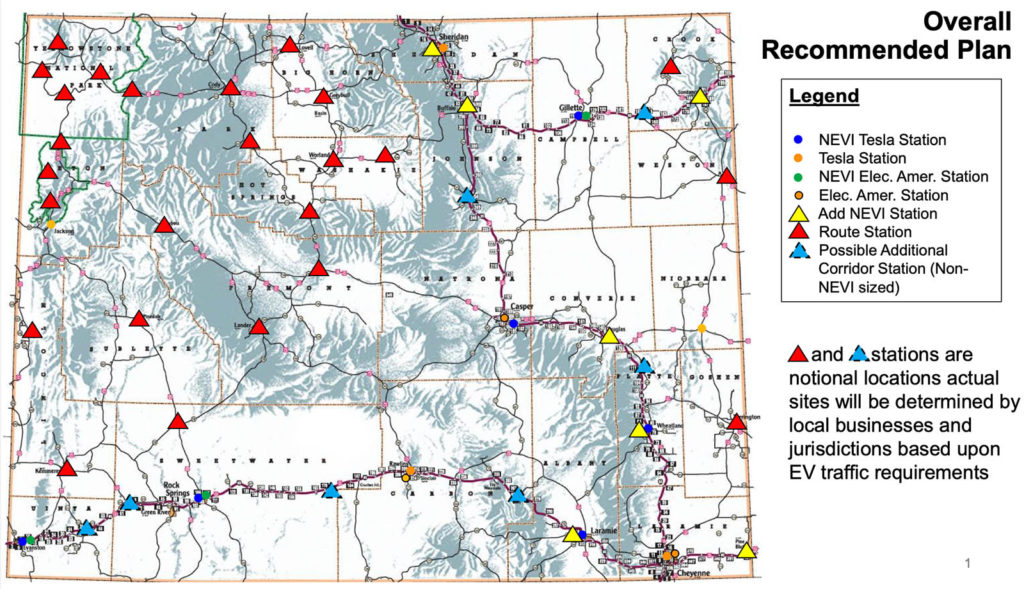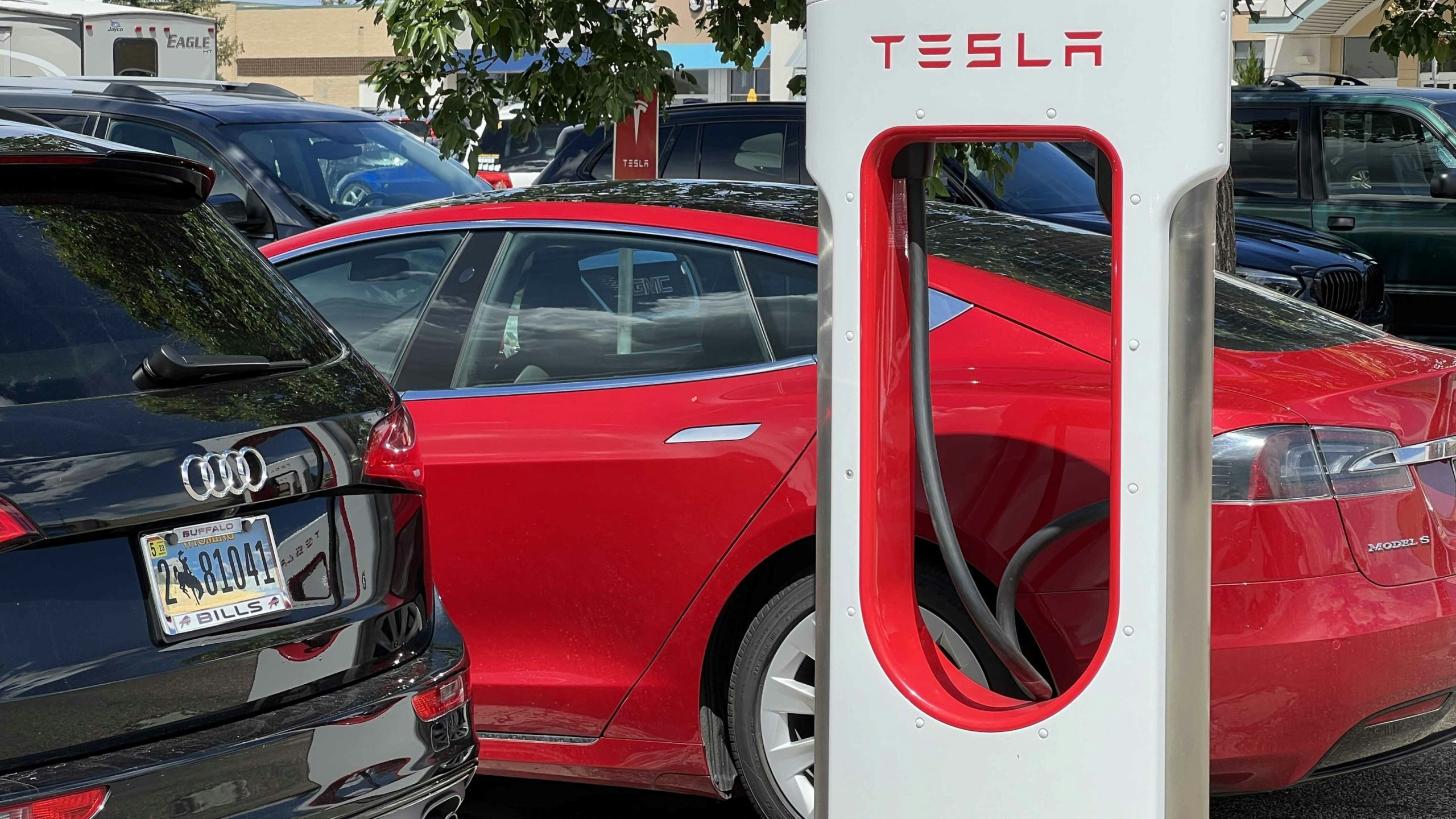If the Wyoming Department of Transportation were to follow all the federal guidelines laid out for a program that pays to build and operate more charging stations along the nation’s roadways, Wyoming would need 17 charging stations at a cost of about $19 million — and they wouldn’t be profitable.
Federal guidelines for the National Electric Vehicle Infrastructure (NEVI) program require that charging stations be placed every 50 miles along the interstates and that they be located no more than a mile from an exit.
To meet those requirements, 17 charging stations would need to be built along Interstates 25, 80 and 90 through Wyoming, which would cost about $19 million of the $24 million available through the program over the next five years.
The program requires a 20% match from private businesses that would build and operate the stations. No money would be required from the state of Wyoming.
Charging Station Price Tag
With only a few hundred EVs registered in Wyoming, the stations would primarily serve out-of-state drivers for the benefit of the state’s tourism industry. With so few cars using the stations, though, they wouldn’t likely be profitable.
Patrick Lawson, owner of Wild West EV, said there are a lot of variables that go into the costs of building a charging station, and inflation rates are raising that. Lawson said ballpark figures are about $500,000 per station, which means the feds would pay $400,000 per station.
The Wyoming Department of Transportation did an analysis of costs for a fully compliant NEVI program in the state. Based on responses from six companies, the state’s plan estimated costs of construction would be between $478,000 and $725,000 per station, which doesn’t include costs associated with installing a 480-volt 3-phase power supply.
One company estimated that the cost of construction and operation over a decade would be between $587,000 and $837,000, based on an average of 10 station visitors per day.
“In the end, it would create a system that is not economically feasible for private industry, especially Wyoming-owned businesses and disadvantaged communities, two entities the program is designated to primarily support,” Luke Reiner, WYDOT director, wrote in the introduction of the state’s submitted plan.
The plan, which the Federal Highway Administration approved in September, notes that many of the 17 stations would have no nearby services and be built in areas with population densities of less than 50 people per square mile. The plan WYDOT submitted requested 11 exemptions to present a charging station plan that makes more sense in Wyoming. The feds approved three of the exemptions.

Tesla Superchargers
Jordan Achs, a spokesperson with WYDOT, said the department still hasn’t received any guidance on why eight of the exemptions were denied or if there’s some kind of appeal process to get the Federal Highway Administration to reconsider.
The plan Wyoming submitted includes options to pursue in case the feds denied the exemptions. Without the exemptions, the state plans to build four stations at Pine Bluffs, Buffalo, Douglas and Sundance.
Additionally, three more would be built depending on whether Tesla opens its Supercharger stations to non-Tesla drivers. The company announced last summer it would, but Achs said the department hasn’t heard any official announcement when this will happen.
Assuming Tesla doesn’t make its stations available to all EV owners, federal NEVI money will be used to build three more stations at Sheridan, Wheatland and Laramie.
The highway department would then use remaining NEVI funding to support the stations’ operations over the next five years, which would cost $7 million to $12 million.
Achs said the highway administration hasn’t finalized all the rules for the program, which may be a few months away, and WYDOT can’t issue requests for proposals until those rules are announced. The department also will need to submit plans annually to receive the full $24 million available for Wyoming’s program.





